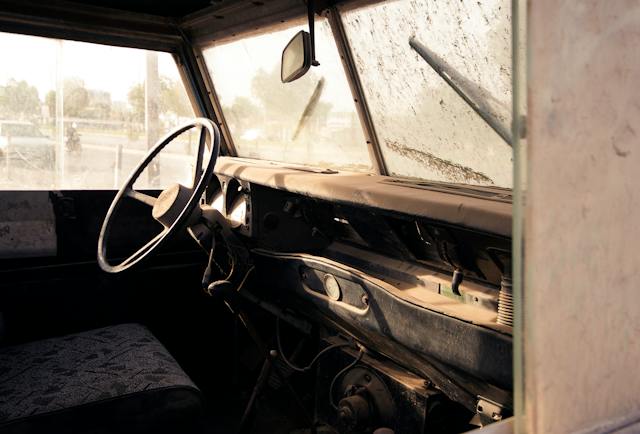
If you’re a proud owner of an old Land Rover, you know that these iconic vehicles require special care to keep them running smoothly.
Whether you’re a seasoned Land Rover enthusiast or new to the world of off-road adventure, these 10 tips will help you maintain and extend the life of your beloved vehicle.
And remember, consulting a Land Rover specialist is often your best bet when it comes to servicing and repairs.
1. Regular Maintenance is Key
Regular maintenance is the foundation of a long-lasting Land Rover. Follow the manufacturer’s recommended maintenance schedule, which includes oil changes, filter replacements, and other essential checks. A Land Rover specialist can provide expert guidance on this.
2. Keep an Eye on Fluids
Check and top up your Land Rover’s fluids regularly. This includes engine oil, transmission fluid, brake fluid, and coolant. Proper fluid levels are crucial to keep your vehicle running smoothly.
3. Tackle Rust ASAP
Old Land Rovers are prone to rust, especially in regions with harsh weather conditions. Inspect your vehicle regularly for rust spots and address them promptly. Sand, treat, and repaint affected areas to prevent further corrosion.
4. Invest in Quality Parts
When replacing parts, don’t compromise on quality. Genuine Land Rover parts are designed to fit and perform perfectly in your vehicle. Consult a Land Rover specialist to ensure you’re getting the right components.
5. Check the Electrical System
Electrical issues can be common in older Land Rovers. Ensure your battery, alternator, and starter are in good condition. Regularly inspect and replace worn-out wires and connectors.
6. Preserve the Interior
The interior of your Land Rover is just as important as the mechanical components. Clean and regularly condition the seats, dashboard, and other interior surfaces to prevent wear and tear.
7. Maintain the Suspension
A smooth ride is essential for off-road adventures. Keep an eye on your Land Rover’s suspension system, including shocks, struts, and springs. Replace worn-out components for improved comfort and stability.
8. Check the Brakes
Properly functioning brakes are crucial for safety. Regularly inspect and replace brake pads and rotors when needed. A Land Rover specialist can perform a thorough brake inspection.
9. Don’t Neglect the Transmission
Older Land Rovers may have manual or automatic transmissions. Ensure your transmission is well-maintained by changing the fluid as your owner’s manual recommends.
10. Off-Roading Tips
If you enjoy off-roading, take care to choose appropriate trails and drive responsibly. Be mindful of your Land Rover’s capabilities and limitations. A Land Rover specialist can provide advice on modifications for off-road adventures.
Are Land Rover hard to maintain?
Maintaining a Land Rover can be more challenging and potentially more expensive compared to some other vehicles. Still, it largely depends on various factors, including the model, age, and how well the vehicle has been cared for throughout its life.
Here are some factors to consider when it comes to Land Rover maintenance:
- Age and Model: Older Land Rover models, especially those from the 1990s and earlier, may require more maintenance due to their age and the complexity of their systems. Newer models may have more advanced technology but also have their own maintenance requirements.
- Specialized Knowledge: Land Rovers have unique engineering and design features, which often require specialized knowledge and tools for proper maintenance and repair. It’s advisable to consult a Land Rover specialist or a mechanic with expertise in Land Rovers for service and repairs.
- Parts and Costs: Genuine Land Rover parts can be more expensive than generic or aftermarket options. However, using quality, genuine parts is essential for your Land Rover’s optimal performance and longevity.
- Regular Maintenance: Like any vehicle, regular maintenance is key to running a Land Rover smoothly. Following the manufacturer’s recommended maintenance schedule is crucial. Neglecting maintenance can lead to more significant and costly issues down the road.
- Off-Road Use: Using your Land Rover for off-roading adventures may require more frequent inspections and maintenance due to the additional wear and tear incurred during such activities.
- Rust Issues: Land Rovers, especially older ones, can be prone to rust, particularly if used in areas with harsh weather conditions. Rust prevention and treatment should be a part of regular maintenance to avoid structural damage.
- Electrical Systems: Some Land Rovers may have complex electrical systems that can be prone to issues. Regular checks and promptly addressing electrical problems are important.
Caring for an old Land Rover requires dedication and attention to detail. Regular maintenance, addressing rust issues, and using quality parts are essential steps. Additionally, consulting a Land Rover specialist for guidance and service is crucial to ensure the longevity of your beloved vehicle. With the right care, your old Land Rover will continue to provide you with unforgettable adventures for years to come.